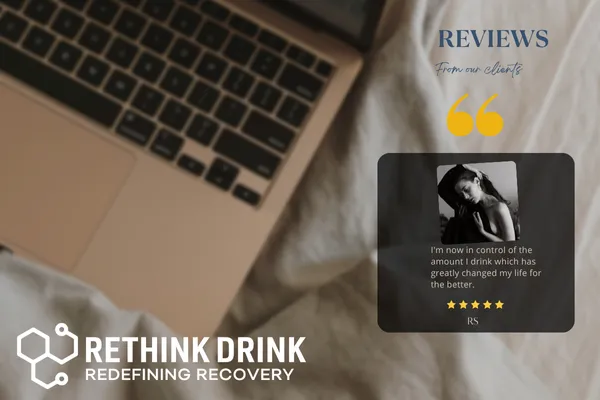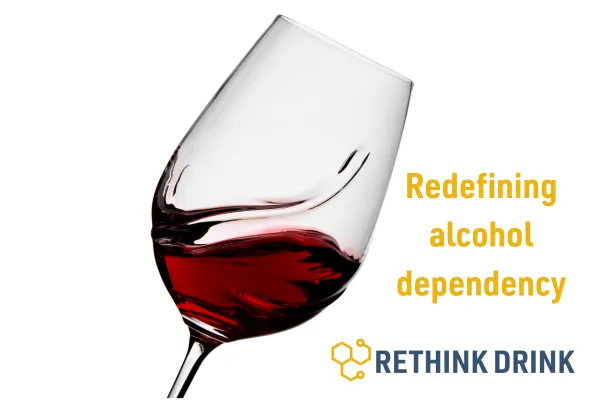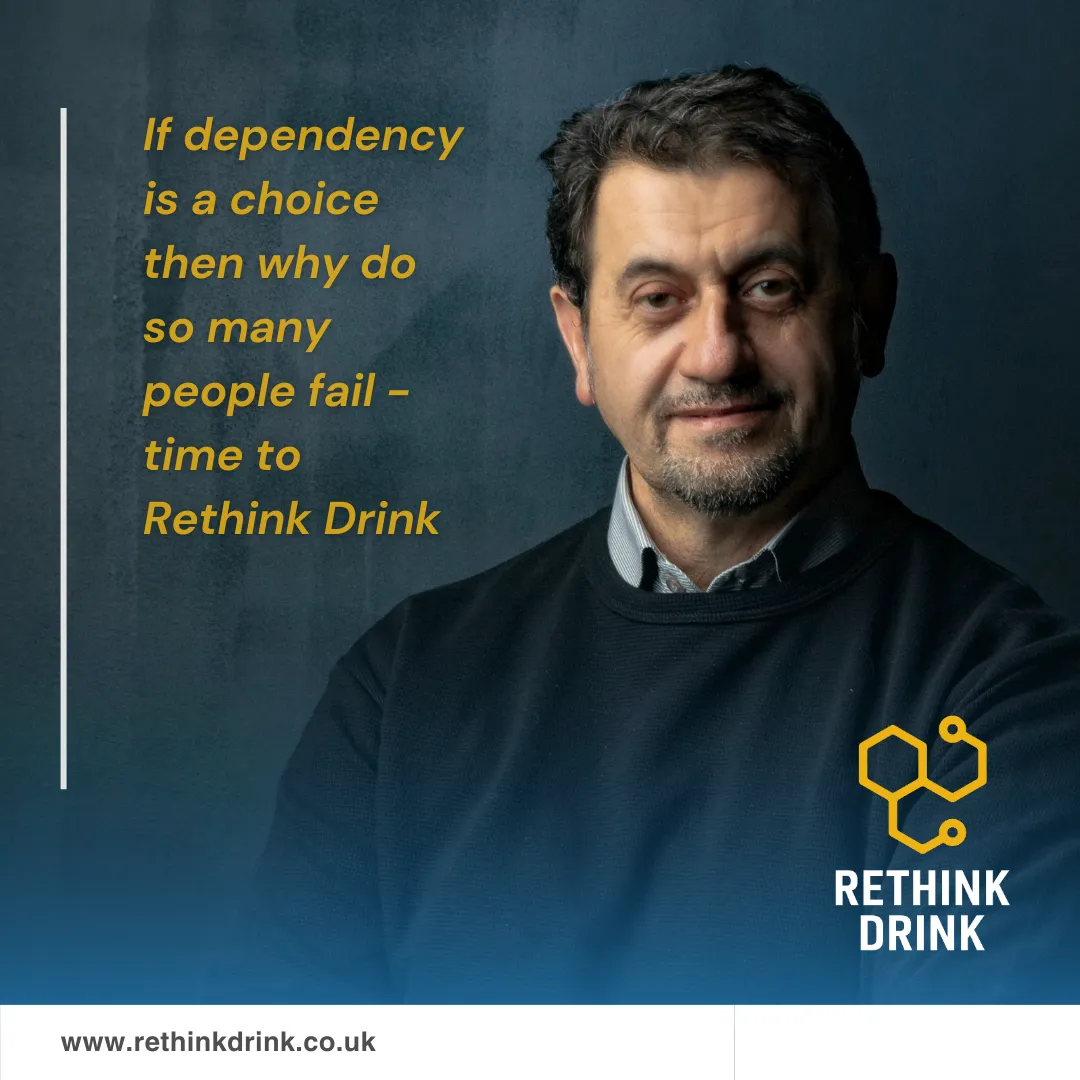Sinclair Method Studies
This article examines the scientific foundation behind TSM, drawing on nearly three decades of peer‑reviewed trials, neuroimaging research, and systematic reviews.

Rethink Drink’s Trustpilot page features many verified reviews from clients who’ve experienced life-changing results. Ranging from liberation from daily drinking to newfound confidence, the feedback reflects genuine transformation through the Sinclair Method.

When we think of recovery from alcohol dependency, the image that often springs to mind is a circle of people saying, “Hi, I’m John, and I’m an alcoholic.” This familiar ritual of Alcoholics Anonymous (AA) has been a cornerstone of addiction recovery since the 1930s. But as society changes, and science advances, many are asking: is AA becoming outdated?

"Why don’t they just stop?" It’s a familiar question — one that often leads to frustration, judgement, and misunderstanding. For years, alcohol dependency has been viewed through the lens of morality or self-control. But science paints a different picture: alcohol use disorder (AUD) is not a lifestyle choice, but a chronic condition shaped by changes in brain function.

In the United Kingdom, the Chief Medical Officers advise that to keep health risks from alcohol low, adults should drink no more than 14 units of alcohol per week. This guideline is the same for both men and women, and it is best to spread the intake across three or more days rather than consuming it all at once

When many people first hear about The Sinclair Method (TSM), they assume it's just about taking a pill. Simple, right? Pop naltrexone before drinking, and eventually lose the urge. But here's the truth: success on TSM isn't just about the medication — it's about the method, the mindset, and most importantly, the support.

For years, many believed that overcoming alcohol dependency required sheer willpower or complete abstinence. But what if alcohol dependency is treatable in a way that doesn't require lifelong struggle? Science now shows that addiction to alcohol is deeply tied to the endorphin reward system in the brain.
The Sunday Reset
Every Sunday, we share a 2-minute insight into the logic of the Sinclair Method.
Join thousands of others for our weekly newsletter and change how you see the problem,
because when you change the way you look at things, the things you look at change.
… There’s a reason we’re called Rethink Drink!
